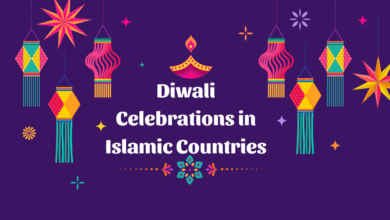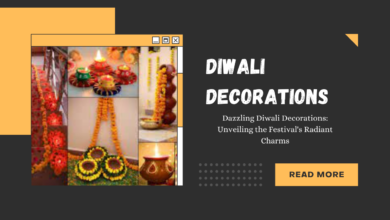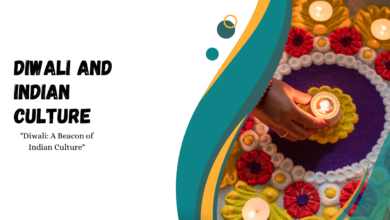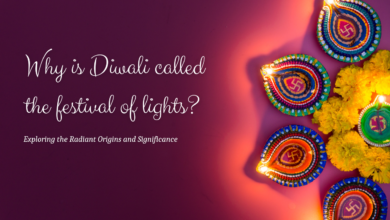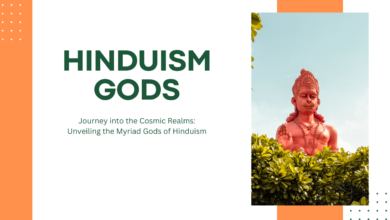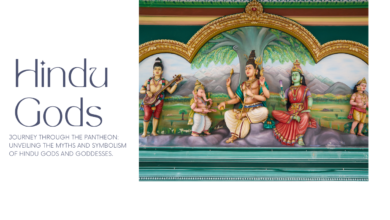Why We Celebrate Diwali?
Illuminating Diwali: Unveiling the Cultural Tapestry of the Festival of Lights
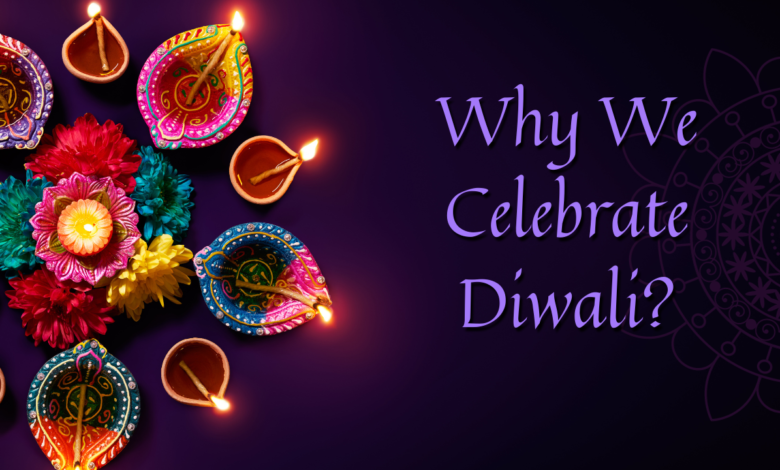
Why We Celebrate Diwali?
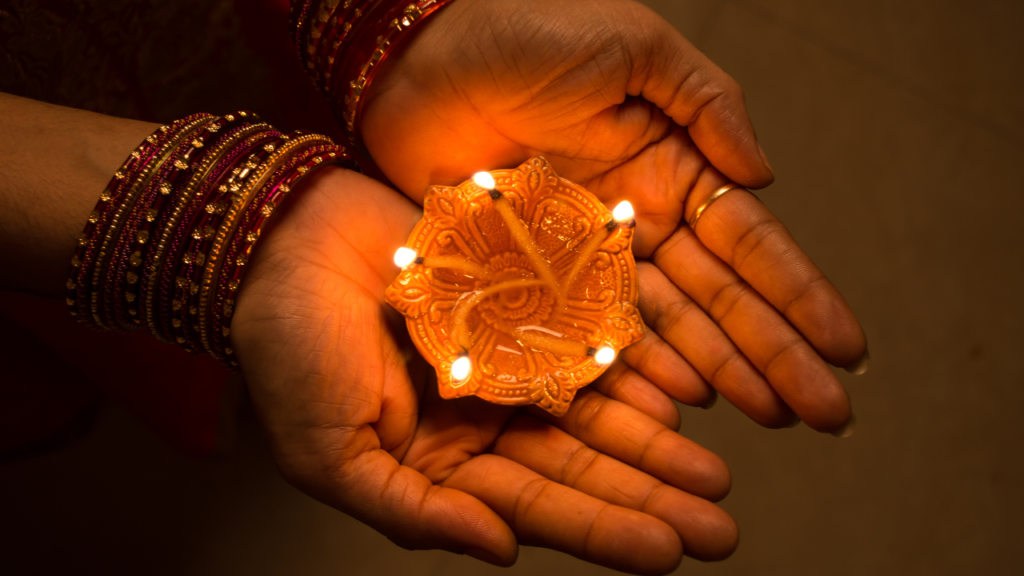
Introduction
Diwali, also known as the Festival of Lights, holds a special place in the hearts of millions across the globe. It is a celebration that transcends religious and cultural boundaries, uniting people in the spirit of joy and festivity. In this article, we will explore the multifaceted aspects of Diwali, from its historical roots to modern-day celebrations, with a special focus on making the festival accessible to beginners.
Historical Significance
Diwali’s roots trace back to ancient times, with its origins deeply embedded in various cultural and religious narratives. Primarily celebrated by Hindus, the festival marks the triumph of light over darkness. The historical significance of Diwali lies in the victory of good over evil, symbolized by the defeat of the demon king Ravana by Lord Rama. Over the centuries, Diwali has become a cultural tapestry, weaving together stories from Hindu, Sikh, Jain, and Buddhist traditions.
Traditions and Customs
Central to Diwali is the tradition of lighting lamps and candles, signifying the dispelling of darkness and the arrival of hope. Fireworks illuminate the night sky, creating a spectacle that symbolizes the victory of light over ignorance. Understanding the deep-rooted symbolism behind these traditions adds depth to the celebration.
Diwali and Hinduism
For Hindus, Diwali is a time for fervent prayers and rituals. Homes are adorned with colorful decorations, and families come together to seek blessings from deities. It is a time for spiritual reflection, with prayers offered for prosperity, happiness, and well-being.
Diwali and Other Religions
While Diwali is primarily a Hindu festival, its celebration extends to Sikhism, Jainism, and Buddhism. Each community brings its unique flavor to the festivities, emphasizing shared values and cultural elements. This inclusivity showcases the universal message of Diwali – the triumph of good over evil.
Decorations and Rangoli
The vibrancy of Diwali is not only seen in the lighting but also in the elaborate decorations that adorn homes. Rangoli, a traditional art form using colorful powders, is created to welcome guests and bring good luck. Understanding the significance of these decorations adds a layer of appreciation to the visual spectacle.
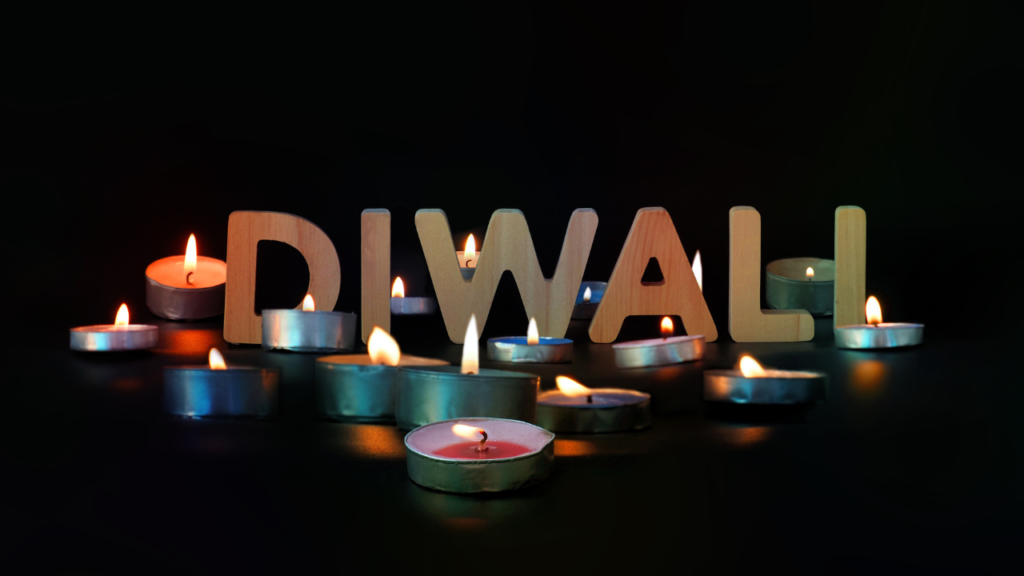
Also Check
- Hindu Gods
- 5 Days of Diwali 2023
- How To Die Peacefully In Islam?
- Diwali Decorations
- Diwali and Indian Culture
Diwali Food Delights
No festival is complete without indulging in delicious treats, and Diwali is no exception. Special dishes and sweets are prepared, symbolizing the sweetness of life and the sharing of joy with loved ones. Exploring the culinary delights associated with Diwali adds a sensory dimension to the celebration.
Diwali Gifts and Exchanges
Gifting is an integral part of Diwali, with families and friends exchanging presents as a gesture of love and goodwill. Choosing meaningful gifts and understanding the cultural significance behind this tradition enhances the spirit of giving during the festival.
Diwali for Beginners
For those new to Diwali, the festival might seem overwhelming. Breaking down the key traditions, such as lighting lamps, creating rangoli, and sharing meals, makes it more accessible. Diwali is not just a celebration; it’s an invitation to partake in a rich tapestry of traditions that promote joy and togetherness.
Diwali Across the Globe
The celebration of Diwali has transcended borders, with communities around the world joining in the festivities. Understanding how Diwali is celebrated globally provides a fascinating insight into the cultural variations and adaptations that have taken place.
The Spiritual Aspect
Beyond the external celebrations, Diwali holds a profound spiritual significance. It is a time for self-reflection, inner illumination, and the pursuit of higher values. The festival encourages individuals to embark on a journey of self-discovery and spiritual growth.
Diwali and the Environment
In recent years, there has been a growing awareness of the environmental impact of festivals. Eco-friendly Diwali celebrations have gained popularity, emphasizing the use of sustainable practices and reducing the carbon footprint associated with traditional festivities.
Diwali and Family Bonding
At its core, Diwali is about coming together as families. The festival fosters a sense of unity and strengthens familial bonds. Whether it’s participating in rituals, sharing meals, or enjoying the festivities, Diwali is a time to prioritize relationships and create lasting memories.
Modern Celebrations
As times change, so do traditions. Diwali has evolved over the years, embracing modern trends while preserving its cultural essence. From social media celebrations to innovative decorations, the festival continues to be a dynamic and evolving celebration of light and joy.
Conclusion
In conclusion, Diwali is more than just a festival; it is a celebration of light, love, and unity. Understanding its historical roots, traditions, and the diverse ways it is celebrated enriches the experience. As the lights twinkle and the festivities unfold, Diwali remains a beacon of hope and positivity for millions around the world.
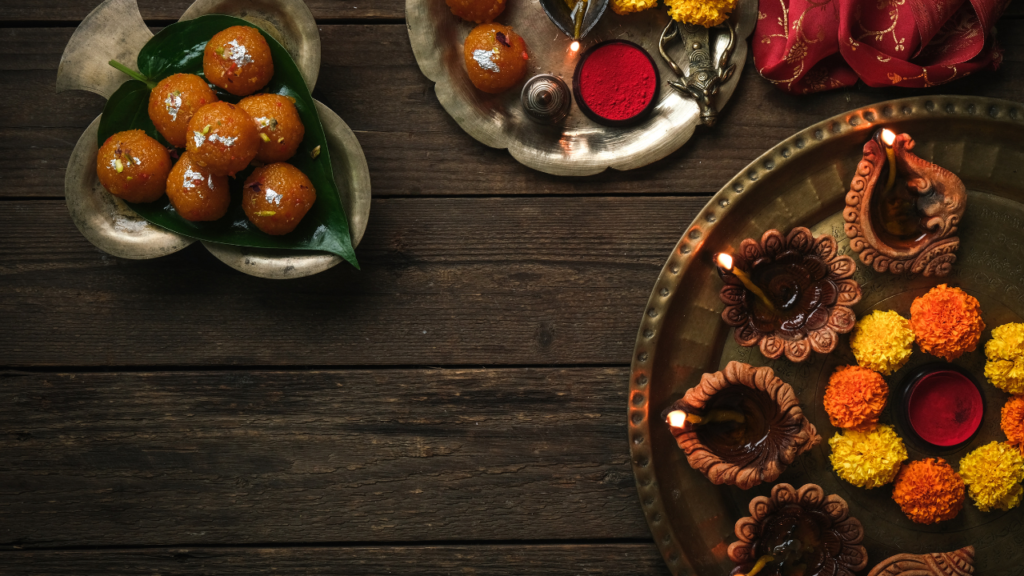
FAQs-About Why We Celebrate Diwali?
What is the significance of Diwali?
Diwali signifies the triumph of light over darkness, symbolizing the victory of good over evil.
How do Hindus celebrate Diwali?
Hindus celebrate Diwali with prayers, rituals, lighting lamps, and creating vibrant decorations to seek blessings and promote positivity.
Is Diwali only celebrated by Hindus?
No, Diwali is celebrated by Hindus, Sikhs, Jains, and Buddhists, emphasizing unity and shared cultural values.
Why do we light lamps during Diwali?
Lighting lamps represents dispelling darkness and welcoming hope, signifying the triumph of knowledge over ignorance.
What is the historical origin of Diwali?
Diwali’s roots trace back to ancient times, with its primary origin in Hindu mythology, particularly the Ramayana.
How has Diwali evolved over the years?
Diwali has evolved with modern trends, incorporating social media celebrations and innovative decorations while preserving its cultural essence.
What are some eco-friendly practices for Diwali?
Eco-friendly Diwali practices include using sustainable materials for decorations, minimizing fireworks, and promoting environmental awareness.
Why is family bonding important during Diwali?
Diwali emphasizes the importance of family, fostering unity and creating cherished memories through shared rituals and celebrations.
Are there specific foods associated with Diwali?
Yes, special dishes and sweets are prepared during Diwali, symbolizing the sweetness of life and sharing joy with loved ones.
How is Diwali celebrated globally?
Diwali is celebrated worldwide, with communities adapting the festivities to their cultures, showcasing diverse traditions and adaptations.
